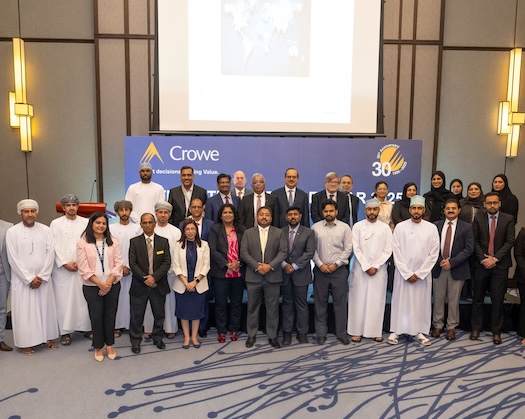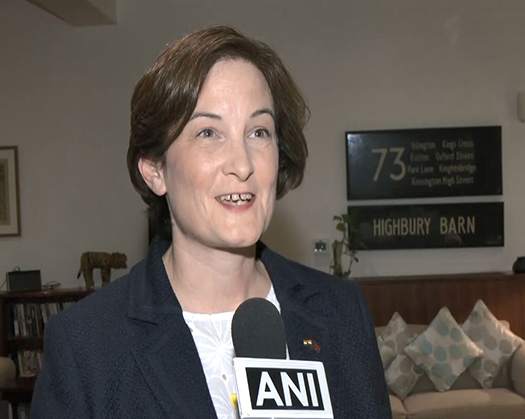The International Tax Seminar hosted by Crowe Oman, a prominent audit and advisory company in the Sultanate, focused on the application of transfer pricing regulations, base erosion and profit shifting concepts, and global minimum tax standards. The event, hosted at the Hormuz Grand Hotel, gathered prominent tax specialists, banking executives, business leaders, finance managers, and enthusiasts for an informative discussion about the changing global tax environment.
Welcoming the attendees, Dr. Davis Kallukaran, Managing Partner at Crowe Oman, emphasized the increasing challenges that tax establishments are facing across borders, stating that “Taxation is no longer just a statutory requirement, but a strategic imperative. ” Dr. Davis emphasized taxation's important role in influencing global business decisions, stressing the need for all stakeholders to understand its nuances. He warmly welcomed the keynote speakers, Dr. Robert E. B. Peake and Mr. Matthew Moriarty, who went on to share their insightful perspectives on the implications of international taxation. The seminar offered a number of informative presentations designed to equip Omani enterprises with the knowledge they need to successfully navigate worldwide tax systems.
Dr. Robert Peake opened the discussion by discussing the topic of Global Expansion, clarifying the important tax obstacles that Omani firms must face when entering the international arena. He underlined the strategic significance of tax treaties, demonstrating how they might influence cross-border activities and lower tax risks. He also emphasized their real-world consequences for corporate structures and profitability, providing practical advice on how organizations may remain compliant across different tax jurisdictions.
Mr. Matthew Moriarty presented an interesting session on the BEPS (Base Erosion and Profit Shifting) action points' crucial significance. He described how multinational corporations use tax planning methods to take advantage of gaps and inconsistencies in tax legislation across jurisdictions, making BEPS a worldwide issue. He also explored into OECD methodologies, the Transfer Pricing Arm's Length Principle, and associated regulatory frameworks, maintaining audience interest through practical examples and debates. He outlined the goals and recent advancements under Pillar One and explained the broad-reaching impact of Pillar Two's Global Minimum Tax. He finished his presentation by exploring how the quick expansion of the digital economy is altering business dynamics in Oman, providing thought-provoking insights on the future of taxation in a digitalized world.
The seminar ended with an engaging Q&A session that led to insightful dialogue on tax strategies. Mr. Antony Kallukaran, Partner - Tax Advisory Services, delivered the vote of thanks, expressing gratitude to the distinguished speakers and participants for making the International Tax Seminar a meaningful success.









